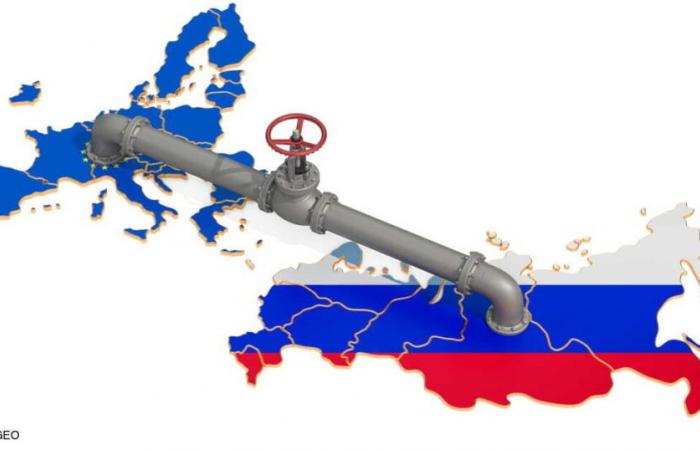The countdown is on. In 2019, kyiv and Moscow agreed – not without difficulty – on an agreement allowing the circulation of Russian gas towards Europe, via Ukraine. This agreement signed with the company Gazprom must end at the end of 2024. However, the two nations affirmed this week that they did not want to renew this contract. For good reason, Ukraine no longer wants Russian gas to circulate through its pipelines.
According to the media Bloomberg, this situation particularly worries the big banks, as well as the European Commission, many member countries of which are entirely dependent on Russian gas. As of January 1, they will have to turn to other sources, which risks increasing costs.
Russia supplies around 15% of Europe's gas imports, and although only a third of this gas passes through Ukraine, the situation is worrying. In reality, bank traders only have a few days left to try to make assumptions about the future of the gas market.
Russia: on the gas route, from the Caspian to the Black Sea
What impact on gas prices?
The first hypothesis consists of believing that the agreement will indeed not be renewed. This is the scenario favored in particular by the banks Goldman Sachs and HSBC.
In this case, the lost volumes would particularly hurt countries like Slovakia, which has called for a deal in recent weeks, warning of possible financial impacts. Austria, the Czech Republic and Italy, which benefit from these flows, should turn to other suppliers. These countries would therefore see the cost of gas increase in the short term.
However, a recent assessment by the European Union's executive body indicates that the overall impact is expected to be “negligible”, since the continent already has other sources of supply. The 15 billion cubic meters of gas that Russia currently sends through Ukraine each year represents less than 5% of Europe's overall needs.
“The price increase will only be significant for a few days at the start of the new year, before the market adapts to the new normal and prices stabilize again” said Florence Schmit, European energy strategist at Rabobank.
Other theories are emerging
“The negotiations are obviously very complex, there are a lot of politics and many different interests, so it is very difficult to predict what will happen on January 1st” said Marco Saalfrank, head of wholesale in continental Europe at Swiss company Axpo Solutions AG.
For their part, traders continue to speculate on fluctuations in the price of gas. Some believe in particular that an agreement would become more likely after the inauguration of Donald Trump on January 20, the latter having affirmed throughout his campaign that he would favor the initiation of peace talks between Ukraine and Russia. However, the United States is one of Europe's main gas suppliers and therefore has its own ambitions in the region.






